Here are eight lovely works with queer, or gender-bendy, or non-normative narratives for young readers. Most of the books on this list are set in a range of desi contexts, even if they are about diaspora, and bring you stories from India, Pakistan, Sri Lanka – and even one stellar one from Iran. Free of lecturbaazi and with a range of compelling themes from keeping friendships and dealing with mental health to accepting one’s family, here are some books that the young people in your life – and you – just won’t be able to put down!FOR YOUNG ADULTSTalking of Muskaan by Himanjali Sarkar (2014)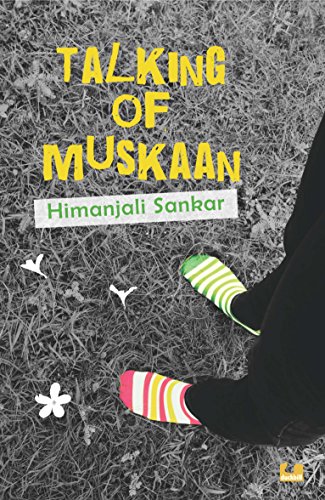 “Muskaan hadn’t come to school.All of them were secretly relieved.”That’s how this novel about a schoolgirl begins, and her friends’ relief turns to horror as they learn that she is in the ICU after trying to take her life.What is it like when you don’t fit in, and you feel like you’re on the outside watching while everyone else is having a party without you? In this story, told by Muskaan’s friends, we piece together what was at the heart of Muskaan’s despair and dive right into the world of teenagers. It isn’t just the fact that Muskaan likes girls that sends a ripple through their world: all of the young people in this story have some reckoning to do – and while they learn to accept Muskaan for who she is, they have to figure out who they are too. Slightly Burnt by Payal Dhar (2014)
“Muskaan hadn’t come to school.All of them were secretly relieved.”That’s how this novel about a schoolgirl begins, and her friends’ relief turns to horror as they learn that she is in the ICU after trying to take her life.What is it like when you don’t fit in, and you feel like you’re on the outside watching while everyone else is having a party without you? In this story, told by Muskaan’s friends, we piece together what was at the heart of Muskaan’s despair and dive right into the world of teenagers. It isn’t just the fact that Muskaan likes girls that sends a ripple through their world: all of the young people in this story have some reckoning to do – and while they learn to accept Muskaan for who she is, they have to figure out who they are too. Slightly Burnt by Payal Dhar (2014)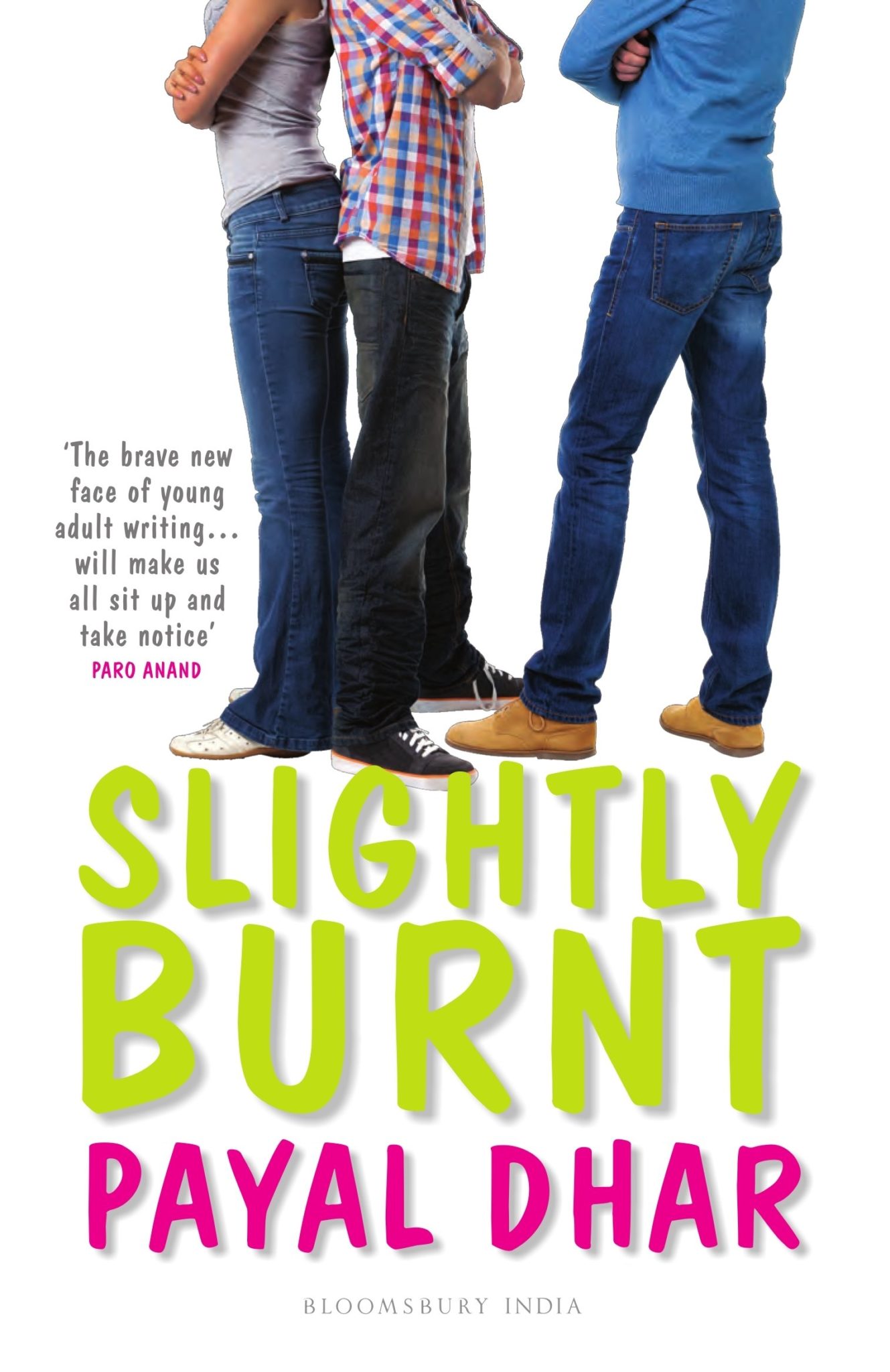 Komal is 16, and her best friend is Sahil. There’s something he wants to tell her – but is she ready to hear it? The school they go to encourages everyone to be open and talk about their feelings. So why has Sahil found it so hard to tell his secret?The confession, when it comes, changes everything. When Komal learns that Sahil is gay, she feels shaken, confused, betrayed. Then she finds out who he is attracted too – and that is a really big deal too. It is Komal who will have to learn to deal with this, and find a way to move forward with her friend. Blue Boy by Rakesh Satyal (2009)
Komal is 16, and her best friend is Sahil. There’s something he wants to tell her – but is she ready to hear it? The school they go to encourages everyone to be open and talk about their feelings. So why has Sahil found it so hard to tell his secret?The confession, when it comes, changes everything. When Komal learns that Sahil is gay, she feels shaken, confused, betrayed. Then she finds out who he is attracted too – and that is a really big deal too. It is Komal who will have to learn to deal with this, and find a way to move forward with her friend. Blue Boy by Rakesh Satyal (2009)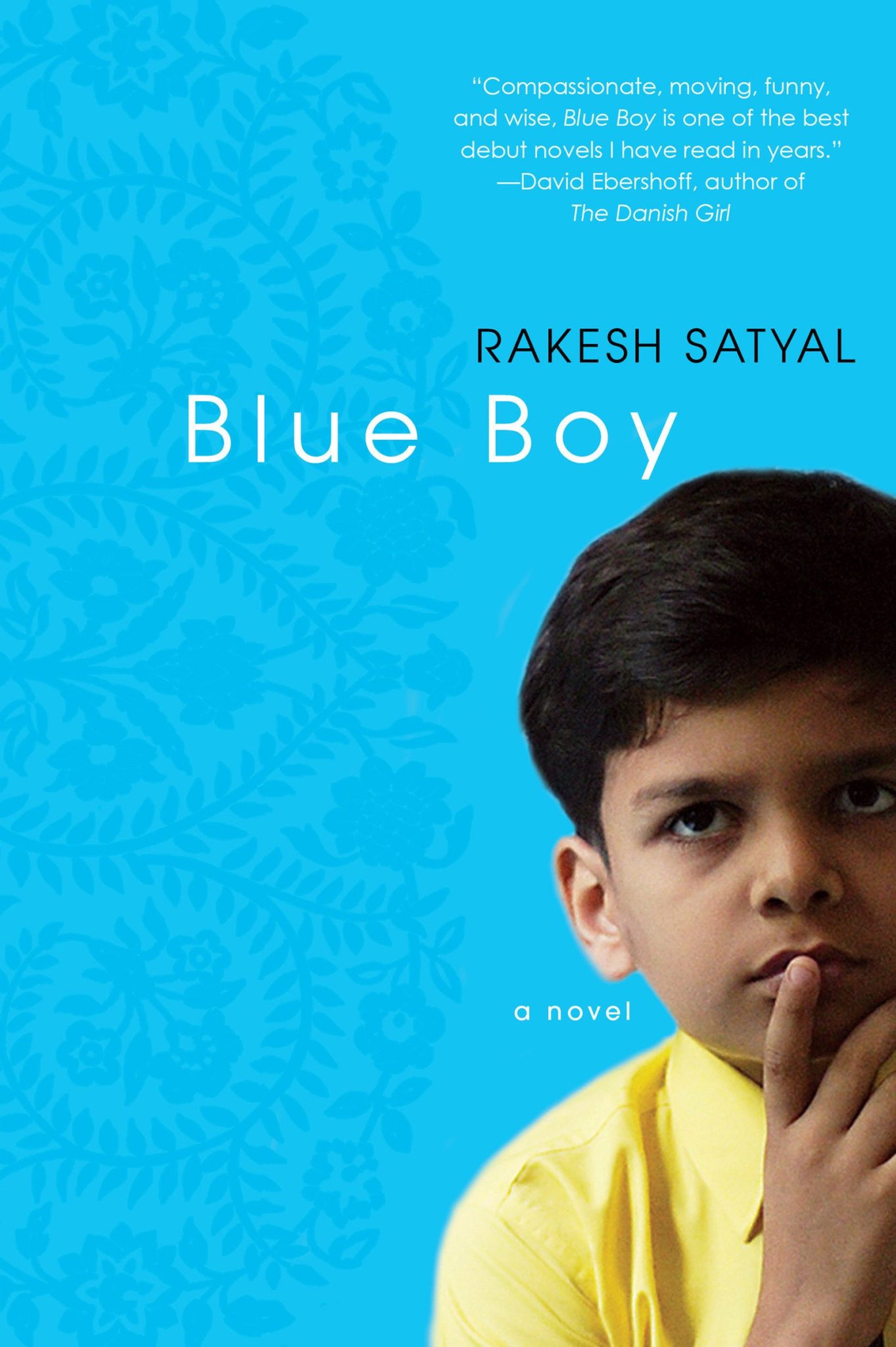 Satyal’s novel is the much-admired story of 12-year-old Kiran Sharma in middle America. Kiran likes ballet and knows his Malibu Barbie from his Evening Gown Barbie. Kiran thinks he is special but also fed up with not fitting in. Eventually he convinces himself he is the 10th reincarnation of Krishna. He plans to come out to the world at the school talent show. As he practices his dance moves to a Whitney Houston song, something begins to happen to Kiran’s skin. Funny, warm and kind, this is a wonderful coming-of-age story set in the 1990s. Swimming in the Monsoon Sea by Shyam Selvadurai (2005)
Satyal’s novel is the much-admired story of 12-year-old Kiran Sharma in middle America. Kiran likes ballet and knows his Malibu Barbie from his Evening Gown Barbie. Kiran thinks he is special but also fed up with not fitting in. Eventually he convinces himself he is the 10th reincarnation of Krishna. He plans to come out to the world at the school talent show. As he practices his dance moves to a Whitney Houston song, something begins to happen to Kiran’s skin. Funny, warm and kind, this is a wonderful coming-of-age story set in the 1990s. Swimming in the Monsoon Sea by Shyam Selvadurai (2005)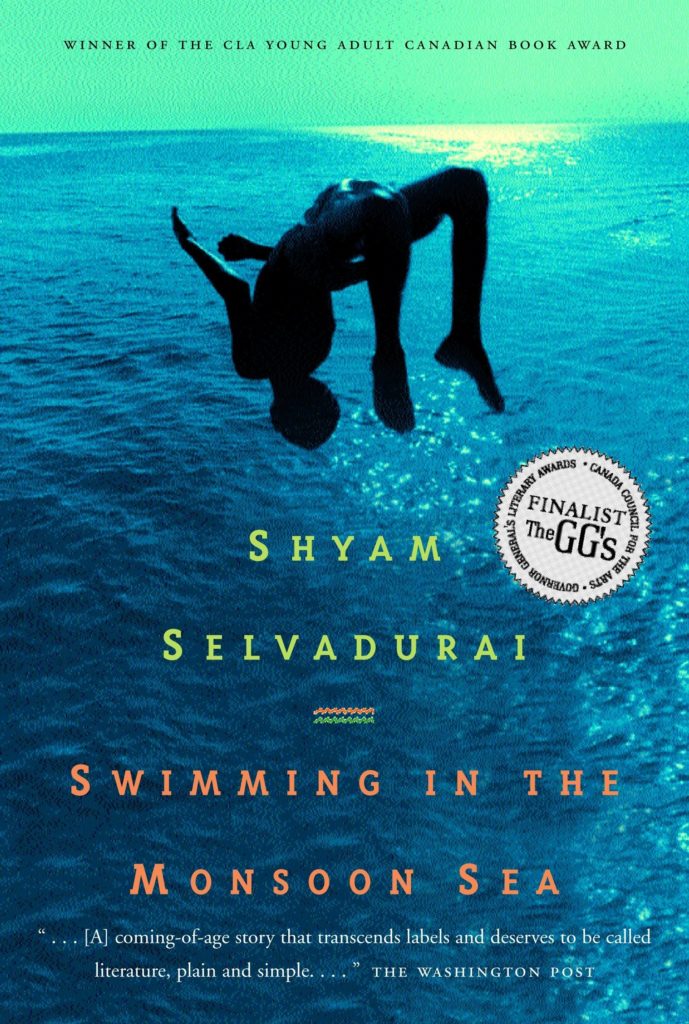 Amrith is 14 years old. His parents died when he was younger, so he is raised by his mother’s well-to-do best friend and her husband. It is the rainy season, it is holiday time, and Amrith dreams of acting in Othello, which his school is staging. Then, just when everything seems quiet and uneventful, an older cousin called Niresh arrives from Canada and Amrith develops a crush on him. This novel, set in Sri Lanka in 1980, follows Amrith’s journey through dealing with grief and his stirring sexuality. Darius the Great Is Not Okay by Adib Khorram (2018)
Amrith is 14 years old. His parents died when he was younger, so he is raised by his mother’s well-to-do best friend and her husband. It is the rainy season, it is holiday time, and Amrith dreams of acting in Othello, which his school is staging. Then, just when everything seems quiet and uneventful, an older cousin called Niresh arrives from Canada and Amrith develops a crush on him. This novel, set in Sri Lanka in 1980, follows Amrith’s journey through dealing with grief and his stirring sexuality. Darius the Great Is Not Okay by Adib Khorram (2018)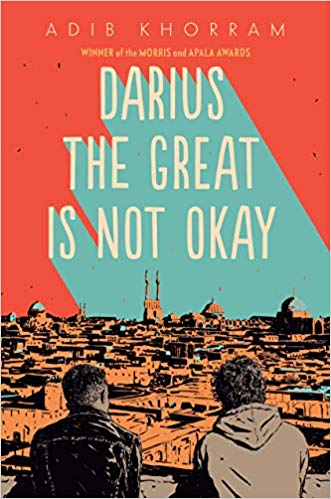 What is it like to never really be comfortable with yourself? Darius Kellner’s father is American and his mum is Iranian. He never quite fit in at home in Portland and now has to travel to Iran for the first time because his grandfather is sick. He’s never met his grandparents before and feels like he probably won’t fit in here either in Yazd. But then he meets Sohrab. And so many of his insecurities – about his cultural background, about being overweight, about being on depression meds – shrink as he learns that it is fine to not fit in. At the heart of this novel is a beautiful, intense and rejuvenating friendship. And as the author says in an interview, “[T]he love between friends can change your world every bit as much as romantic love can.” FOR SMALLIES (under 10)My Chacha is Gay by Eiynah (2014)
What is it like to never really be comfortable with yourself? Darius Kellner’s father is American and his mum is Iranian. He never quite fit in at home in Portland and now has to travel to Iran for the first time because his grandfather is sick. He’s never met his grandparents before and feels like he probably won’t fit in here either in Yazd. But then he meets Sohrab. And so many of his insecurities – about his cultural background, about being overweight, about being on depression meds – shrink as he learns that it is fine to not fit in. At the heart of this novel is a beautiful, intense and rejuvenating friendship. And as the author says in an interview, “[T]he love between friends can change your world every bit as much as romantic love can.” FOR SMALLIES (under 10)My Chacha is Gay by Eiynah (2014)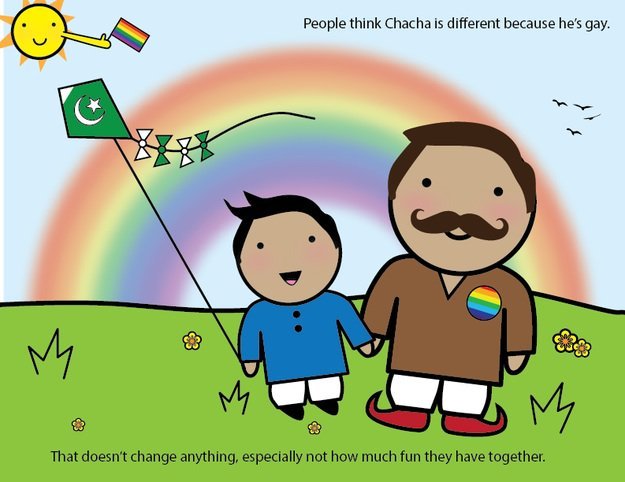 In this story, Ahmed, a little boy who lives in Karachi with his family, tells us about his uncle/chacha who he loves very much, and who has a cool boyfriend who is a pilot. This book introduces to young children the idea that there can be different types of families, and that love doesn’t only have to be between a man and a woman.This started off as a blog post and quickly became a crowdfunded book in print – and was soon translated into multiple languages. The Unboy Boy by Richa Jha (2013)
In this story, Ahmed, a little boy who lives in Karachi with his family, tells us about his uncle/chacha who he loves very much, and who has a cool boyfriend who is a pilot. This book introduces to young children the idea that there can be different types of families, and that love doesn’t only have to be between a man and a woman.This started off as a blog post and quickly became a crowdfunded book in print – and was soon translated into multiple languages. The Unboy Boy by Richa Jha (2013)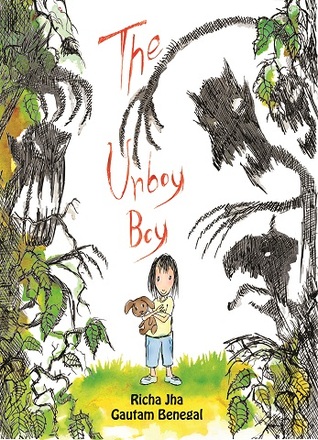 Gagan is little boy who likes what he likes. Unfortunately, what he likes isn’t considered what little boys are supposed to like, and so he gets bullied for it with words like “sissy” and “scaredy cat”. Some of his family wants him to change and “be a man” – play with toy guns and be more macho. All of this makes gentle Gagan feel sad and isolated. One day at summer camp, where he is being bullied, a boy’s cat goes missing and everyone is too scared to go looking for him. Can Gagan step up to the task and will that change how the other children see him?This is a much-praised book that shows how stereotypes about gender can be harmful and untrue, and that it is perfectly okay to not fit expectations of one’s gender. Timmi in Tangles by Shals Mahajan (2013)
Gagan is little boy who likes what he likes. Unfortunately, what he likes isn’t considered what little boys are supposed to like, and so he gets bullied for it with words like “sissy” and “scaredy cat”. Some of his family wants him to change and “be a man” – play with toy guns and be more macho. All of this makes gentle Gagan feel sad and isolated. One day at summer camp, where he is being bullied, a boy’s cat goes missing and everyone is too scared to go looking for him. Can Gagan step up to the task and will that change how the other children see him?This is a much-praised book that shows how stereotypes about gender can be harmful and untrue, and that it is perfectly okay to not fit expectations of one’s gender. Timmi in Tangles by Shals Mahajan (2013)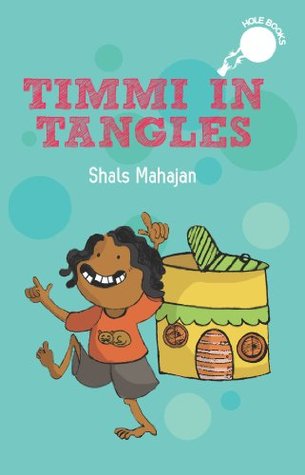 Timmi in Tangles is so gently queer as to be the queerest of them all. Starring the adorable Timmi, the book, without underlining and taking hammer to head, expands the definition of family beyond heteronormative boxes and limits to include a single mom, a housekeeper Kamal Maushi, pets, imaginary friends, and Paro Aunty. Is Paro Aunty Amma’s girlfriend? Could be. Or could be best friend or, well, friend. So natural are these bonds, so familiar, so, dare we say it, “normal” (maybe because it is). Like the best of art, it is written from a place of queerness and so, takes in all of life, including a little Timmi who wants to be a raja, not a princess. The main reason to give this book to a child is that it’s entertaining, funny and maha relatable with fun drawings too. (It has a sequel, Timmi and Rizu, by the way.)
Timmi in Tangles is so gently queer as to be the queerest of them all. Starring the adorable Timmi, the book, without underlining and taking hammer to head, expands the definition of family beyond heteronormative boxes and limits to include a single mom, a housekeeper Kamal Maushi, pets, imaginary friends, and Paro Aunty. Is Paro Aunty Amma’s girlfriend? Could be. Or could be best friend or, well, friend. So natural are these bonds, so familiar, so, dare we say it, “normal” (maybe because it is). Like the best of art, it is written from a place of queerness and so, takes in all of life, including a little Timmi who wants to be a raja, not a princess. The main reason to give this book to a child is that it’s entertaining, funny and maha relatable with fun drawings too. (It has a sequel, Timmi and Rizu, by the way.)
 “Muskaan hadn’t come to school.All of them were secretly relieved.”That’s how this novel about a schoolgirl begins, and her friends’ relief turns to horror as they learn that she is in the ICU after trying to take her life.What is it like when you don’t fit in, and you feel like you’re on the outside watching while everyone else is having a party without you? In this story, told by Muskaan’s friends, we piece together what was at the heart of Muskaan’s despair and dive right into the world of teenagers. It isn’t just the fact that Muskaan likes girls that sends a ripple through their world: all of the young people in this story have some reckoning to do – and while they learn to accept Muskaan for who she is, they have to figure out who they are too. Slightly Burnt by Payal Dhar (2014)
“Muskaan hadn’t come to school.All of them were secretly relieved.”That’s how this novel about a schoolgirl begins, and her friends’ relief turns to horror as they learn that she is in the ICU after trying to take her life.What is it like when you don’t fit in, and you feel like you’re on the outside watching while everyone else is having a party without you? In this story, told by Muskaan’s friends, we piece together what was at the heart of Muskaan’s despair and dive right into the world of teenagers. It isn’t just the fact that Muskaan likes girls that sends a ripple through their world: all of the young people in this story have some reckoning to do – and while they learn to accept Muskaan for who she is, they have to figure out who they are too. Slightly Burnt by Payal Dhar (2014) Komal is 16, and her best friend is Sahil. There’s something he wants to tell her – but is she ready to hear it? The school they go to encourages everyone to be open and talk about their feelings. So why has Sahil found it so hard to tell his secret?The confession, when it comes, changes everything. When Komal learns that Sahil is gay, she feels shaken, confused, betrayed. Then she finds out who he is attracted too – and that is a really big deal too. It is Komal who will have to learn to deal with this, and find a way to move forward with her friend. Blue Boy by Rakesh Satyal (2009)
Komal is 16, and her best friend is Sahil. There’s something he wants to tell her – but is she ready to hear it? The school they go to encourages everyone to be open and talk about their feelings. So why has Sahil found it so hard to tell his secret?The confession, when it comes, changes everything. When Komal learns that Sahil is gay, she feels shaken, confused, betrayed. Then she finds out who he is attracted too – and that is a really big deal too. It is Komal who will have to learn to deal with this, and find a way to move forward with her friend. Blue Boy by Rakesh Satyal (2009) Satyal’s novel is the much-admired story of 12-year-old Kiran Sharma in middle America. Kiran likes ballet and knows his Malibu Barbie from his Evening Gown Barbie. Kiran thinks he is special but also fed up with not fitting in. Eventually he convinces himself he is the 10th reincarnation of Krishna. He plans to come out to the world at the school talent show. As he practices his dance moves to a Whitney Houston song, something begins to happen to Kiran’s skin. Funny, warm and kind, this is a wonderful coming-of-age story set in the 1990s. Swimming in the Monsoon Sea by Shyam Selvadurai (2005)
Satyal’s novel is the much-admired story of 12-year-old Kiran Sharma in middle America. Kiran likes ballet and knows his Malibu Barbie from his Evening Gown Barbie. Kiran thinks he is special but also fed up with not fitting in. Eventually he convinces himself he is the 10th reincarnation of Krishna. He plans to come out to the world at the school talent show. As he practices his dance moves to a Whitney Houston song, something begins to happen to Kiran’s skin. Funny, warm and kind, this is a wonderful coming-of-age story set in the 1990s. Swimming in the Monsoon Sea by Shyam Selvadurai (2005) Amrith is 14 years old. His parents died when he was younger, so he is raised by his mother’s well-to-do best friend and her husband. It is the rainy season, it is holiday time, and Amrith dreams of acting in Othello, which his school is staging. Then, just when everything seems quiet and uneventful, an older cousin called Niresh arrives from Canada and Amrith develops a crush on him. This novel, set in Sri Lanka in 1980, follows Amrith’s journey through dealing with grief and his stirring sexuality. Darius the Great Is Not Okay by Adib Khorram (2018)
Amrith is 14 years old. His parents died when he was younger, so he is raised by his mother’s well-to-do best friend and her husband. It is the rainy season, it is holiday time, and Amrith dreams of acting in Othello, which his school is staging. Then, just when everything seems quiet and uneventful, an older cousin called Niresh arrives from Canada and Amrith develops a crush on him. This novel, set in Sri Lanka in 1980, follows Amrith’s journey through dealing with grief and his stirring sexuality. Darius the Great Is Not Okay by Adib Khorram (2018) What is it like to never really be comfortable with yourself? Darius Kellner’s father is American and his mum is Iranian. He never quite fit in at home in Portland and now has to travel to Iran for the first time because his grandfather is sick. He’s never met his grandparents before and feels like he probably won’t fit in here either in Yazd. But then he meets Sohrab. And so many of his insecurities – about his cultural background, about being overweight, about being on depression meds – shrink as he learns that it is fine to not fit in. At the heart of this novel is a beautiful, intense and rejuvenating friendship. And as the author says in an interview, “[T]he love between friends can change your world every bit as much as romantic love can.” FOR SMALLIES (under 10)My Chacha is Gay by Eiynah (2014)
What is it like to never really be comfortable with yourself? Darius Kellner’s father is American and his mum is Iranian. He never quite fit in at home in Portland and now has to travel to Iran for the first time because his grandfather is sick. He’s never met his grandparents before and feels like he probably won’t fit in here either in Yazd. But then he meets Sohrab. And so many of his insecurities – about his cultural background, about being overweight, about being on depression meds – shrink as he learns that it is fine to not fit in. At the heart of this novel is a beautiful, intense and rejuvenating friendship. And as the author says in an interview, “[T]he love between friends can change your world every bit as much as romantic love can.” FOR SMALLIES (under 10)My Chacha is Gay by Eiynah (2014) In this story, Ahmed, a little boy who lives in Karachi with his family, tells us about his uncle/chacha who he loves very much, and who has a cool boyfriend who is a pilot. This book introduces to young children the idea that there can be different types of families, and that love doesn’t only have to be between a man and a woman.This started off as a blog post and quickly became a crowdfunded book in print – and was soon translated into multiple languages. The Unboy Boy by Richa Jha (2013)
In this story, Ahmed, a little boy who lives in Karachi with his family, tells us about his uncle/chacha who he loves very much, and who has a cool boyfriend who is a pilot. This book introduces to young children the idea that there can be different types of families, and that love doesn’t only have to be between a man and a woman.This started off as a blog post and quickly became a crowdfunded book in print – and was soon translated into multiple languages. The Unboy Boy by Richa Jha (2013) Gagan is little boy who likes what he likes. Unfortunately, what he likes isn’t considered what little boys are supposed to like, and so he gets bullied for it with words like “sissy” and “scaredy cat”. Some of his family wants him to change and “be a man” – play with toy guns and be more macho. All of this makes gentle Gagan feel sad and isolated. One day at summer camp, where he is being bullied, a boy’s cat goes missing and everyone is too scared to go looking for him. Can Gagan step up to the task and will that change how the other children see him?This is a much-praised book that shows how stereotypes about gender can be harmful and untrue, and that it is perfectly okay to not fit expectations of one’s gender. Timmi in Tangles by Shals Mahajan (2013)
Gagan is little boy who likes what he likes. Unfortunately, what he likes isn’t considered what little boys are supposed to like, and so he gets bullied for it with words like “sissy” and “scaredy cat”. Some of his family wants him to change and “be a man” – play with toy guns and be more macho. All of this makes gentle Gagan feel sad and isolated. One day at summer camp, where he is being bullied, a boy’s cat goes missing and everyone is too scared to go looking for him. Can Gagan step up to the task and will that change how the other children see him?This is a much-praised book that shows how stereotypes about gender can be harmful and untrue, and that it is perfectly okay to not fit expectations of one’s gender. Timmi in Tangles by Shals Mahajan (2013) Timmi in Tangles is so gently queer as to be the queerest of them all. Starring the adorable Timmi, the book, without underlining and taking hammer to head, expands the definition of family beyond heteronormative boxes and limits to include a single mom, a housekeeper Kamal Maushi, pets, imaginary friends, and Paro Aunty. Is Paro Aunty Amma’s girlfriend? Could be. Or could be best friend or, well, friend. So natural are these bonds, so familiar, so, dare we say it, “normal” (maybe because it is). Like the best of art, it is written from a place of queerness and so, takes in all of life, including a little Timmi who wants to be a raja, not a princess. The main reason to give this book to a child is that it’s entertaining, funny and maha relatable with fun drawings too. (It has a sequel, Timmi and Rizu, by the way.)
Timmi in Tangles is so gently queer as to be the queerest of them all. Starring the adorable Timmi, the book, without underlining and taking hammer to head, expands the definition of family beyond heteronormative boxes and limits to include a single mom, a housekeeper Kamal Maushi, pets, imaginary friends, and Paro Aunty. Is Paro Aunty Amma’s girlfriend? Could be. Or could be best friend or, well, friend. So natural are these bonds, so familiar, so, dare we say it, “normal” (maybe because it is). Like the best of art, it is written from a place of queerness and so, takes in all of life, including a little Timmi who wants to be a raja, not a princess. The main reason to give this book to a child is that it’s entertaining, funny and maha relatable with fun drawings too. (It has a sequel, Timmi and Rizu, by the way.)






























































































































































































































































































































































































































































































































































































































































































































































































































































































































































































































































































































































































































